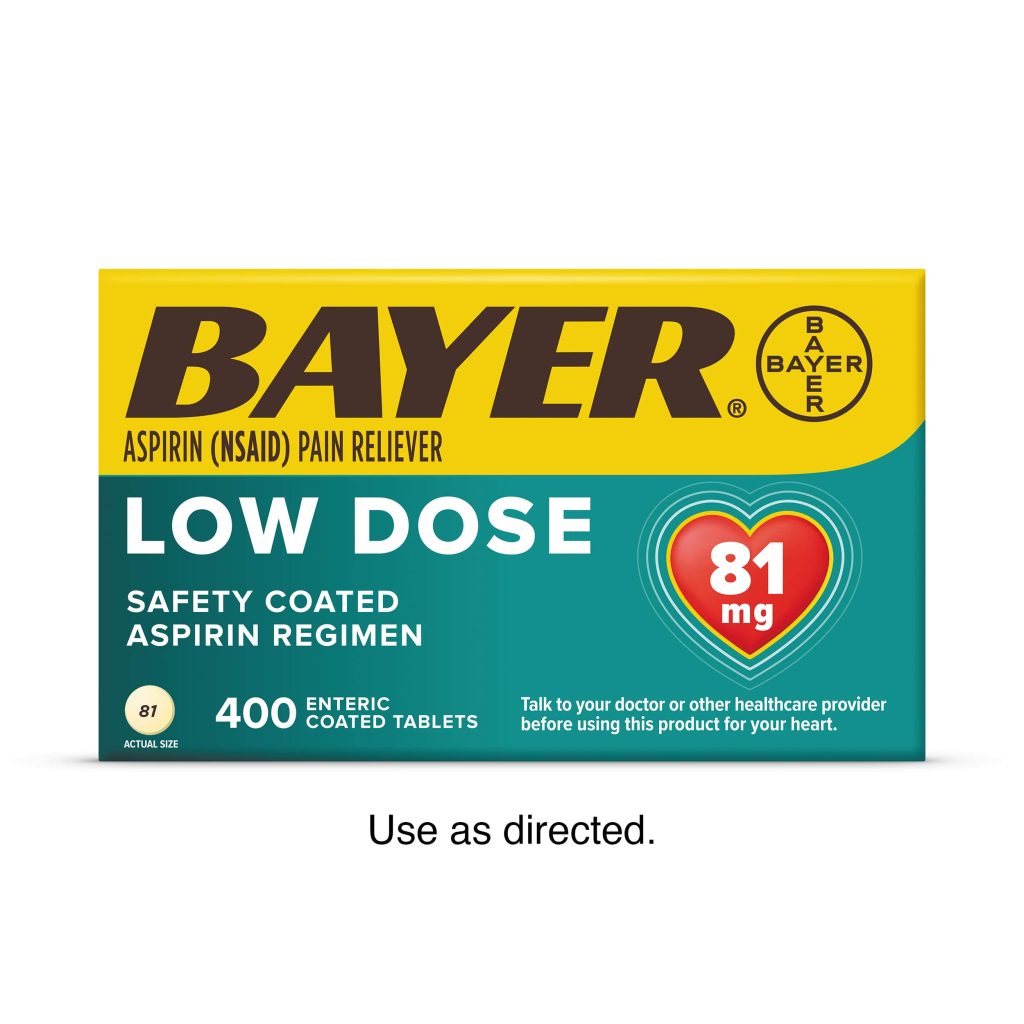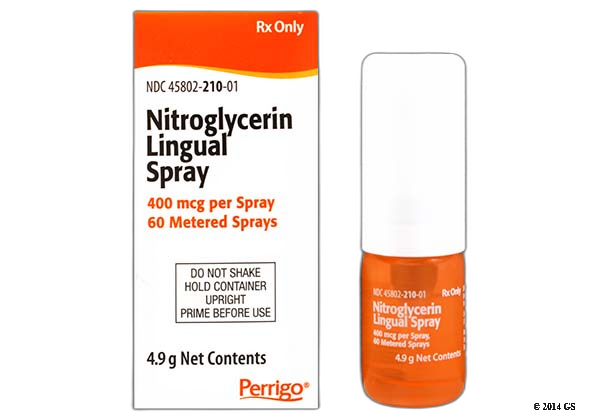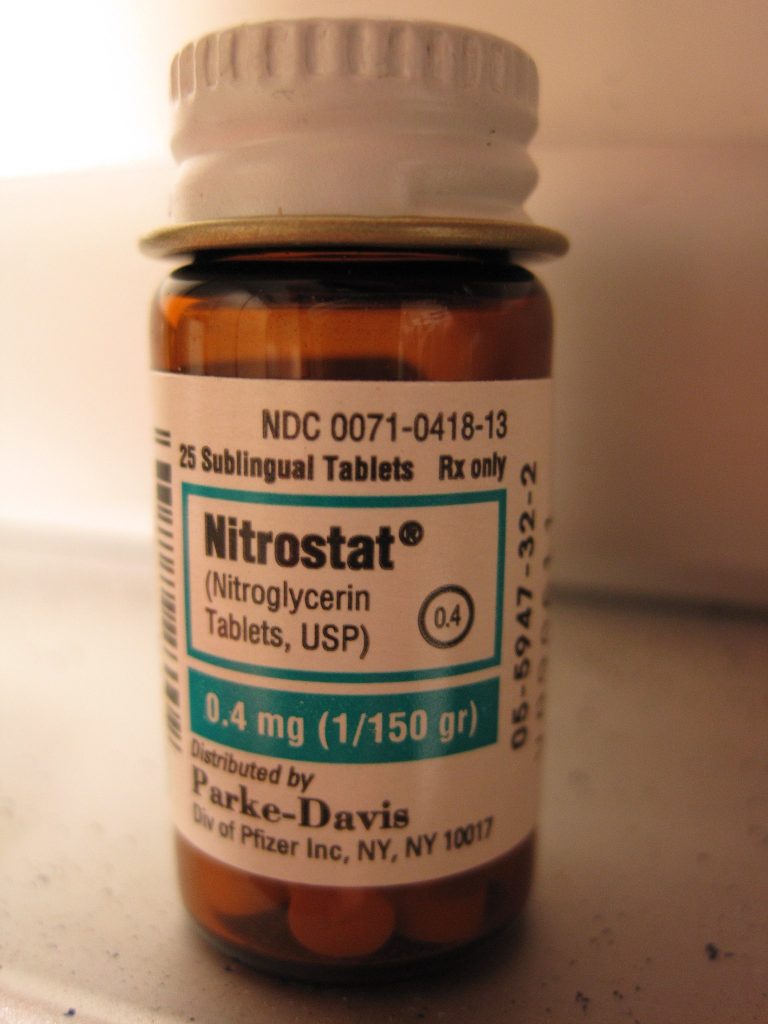Drugs For Chest Pain
Published (updated: ).

Aspirin (ASA)
Current guidelines recommend that people with coronary artery disease (CAD) receive antiplatelet therapy with either aspirin or Clopidogrel (Plavix). Aspirin therapy is very helpful for people with CAD or a history of stroke. If the patient has been diagnosed with CAD, their health care provider may recommend that a daily dose (from 75 to 162 mg) of aspirin. A daily dose of 81 mg is recommended for people who have had PCI (angioplasty). It is most often prescribed along with another antiplatelet medicine. Aspirin can reduce the risk for heart attack and ischemic stroke. However, using aspirin over the long-term can raise your risk for stomach bleeding. Daily aspirin should not be used for prevention in healthy people who are at low risk for heart disease.
What Does Aspirin Do?
Aspirin is an “antiplatelet,” which means that it stops blood cells (called platelets) from sticking together and forming a blood clot. That is why some patients who are recovering from a heart attack are given aspirin—to prevent further blood clots from forming in the coronary arteries. Aspirin also reduces the substances in the body that cause pain and inflammation. Antiplatelets are a group of medicines that stop blood cells (called platelets) from sticking together and forming a blood clot.
Whenever there is an injury in the body, platelets are sent to the site of the injury, where they clump together to form a blood clot. This stops the bleeding in the body if there is a cut or a wound, which is a good thing. But, sometimes, platelets will clump together inside a blood vessel that is injured, swollen (inflamed), or that has plaque build-up (atherosclerosis). When this happens, the platelets can cause a blood clot to form inside the vessel. Platelets can also cause blood clots to form around stents, artificial heart valves, and other devices that are placed inside the heart or blood vessels. Antiplatelet medicines can stop blood clots from forming.

How Aspirin Helps
- The patient does not have a history of heart disease or stroke, but are at high risk for a heart attack or stroke.
- The patient has been diagnosed with heart disease or stroke already.
- Patient has blood flow problems in the lower extremities
- The patient has had an myocardial infarction (heart attack)
- Patient has a history of coronary artery disease (clogged arteries)
Aspirin can have side effects such as:
- Diarrhea
- Itching
- Nausea
- Skin rash
- Stomach pain
Nitroglycerin (NTG)

Nitroglycerin is a vasodilatory drug used primarily to provide relief from anginal chest pain. Nitroglycerin has been FDA approved since 2000 and was first sold as a brand-name agent. It is currently FDA approved for the acute relief of an attack or acute prophylaxis of angina pectoris secondary to coronary artery disease. Off-label, non-FDA-approved uses include treatment for hypertensive urgency/emergency, coronary artery spasm, angina secondary to cocaine use, congestive heart failure (CHF), and chronic anal fissures. Along with hydralazine as a combination therapy, it is also indicated in patients with heart failure with reduced ejection in whom ACE inhibitors are contraindicated. Nitroglycerin was first used in 1879 as a treatment for angina (condition marked by severe pain in the chest, often also spreading to the shoulders, arms, and neck, caused by an inadequate blood supply to the heart) and since it has been part of management to relieve anginal chest pain.
Although nitroglycerin has a vasodilatory effect in both arteries and veins, the profound desired effects caused by nitroglycerin are primarily due to venodilation (dilation of veins). Venodilation causes pooling of blood within the venous system, reducing preload to the heart, which causes a decrease in cardiac work, reducing anginal symptoms secondary to demand ischemia. Arterial vasodilation will still occur and contribute to the relief of anginal symptoms. Vasodilation of the coronary arteries will cause increased blood flow to the heart, increasing perfusion, but this effect remains minimal compared to the effects of venodilation.

Adverse Effects
Nitroglycerin has many adverse effects of significance, most resulting from the vasodilatory effects of the medication. These include:
- Dizziness
- Weakness
- Palpitations
- Vertigo
- Headaches
- Nausea
- Vomiting
- Diaphoresis
- Syncope
Contraindications
The contraindications of nitroglycerine therapy include:
- Allergic reactions to nitroglycerin are extremely rare, but reports do exist. Nitroglycerin is contraindicated in patients that have reported allergic symptoms to the medication.
- Known history of increased intracranial pressure, severe anemia, right-sided myocardial infarction, or hypersensitivity to nitroglycerin are contraindications to nitroglycerin therapy.
